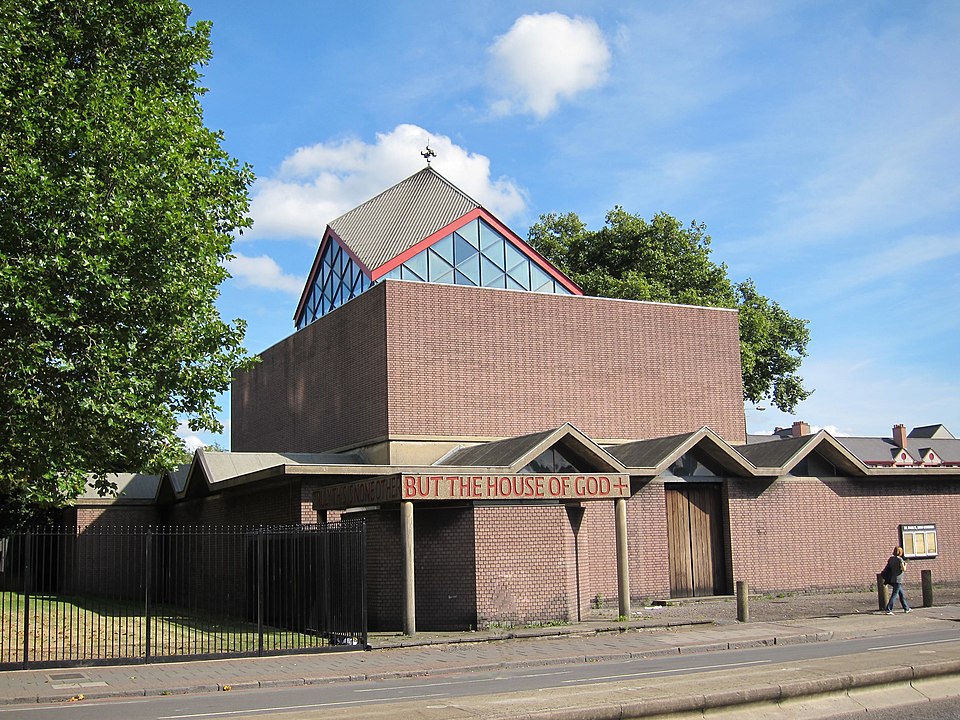Why is an atheist getting confirmed?

This is the first blog post in the series about Christian Atheism. Links to the following posts are below:
- Why is an atheist getting confirmed?
- Our obsession with belief
- Why would atheists want to be part of the church?
- (Planned) What does religious language mean to Christian Atheists?
‘But to ask, ‘Do you believe in God?’ is rather like asking, ‘How long is a piece of string?’ Show me the piece of string and I will tell you how long it is. Tell me what sort of God you have in mind and I will tell you whether I believe in him (or her? Or it?)’ –
Anthony Freeman, God in Us: A case for Christian Humanism
As a few of you might know, I’m being confirmed this September at St Pauls Bow Common, a liberal anglo-catholic church in East London. More of you probably know that I’m an atheist. I’m not writing this post to argue about the existence of god – though I’m happy to discuss that separately. I’m writing to explain what I mean when I say I’m an atheist but that I’m also a Christian, because I realise that to most people those will be contradictory things.
I call myself an atheist because I don’t believe in a real, omnipotent, perfectly good creator god who intervenes in our world: the god that many Christians believe in. I call that the ‘supernatural god’ because it exists in a way which contradicts scientific understanding. I’m not able to believe that, whether I want to or not.
As well as an atheist, I also call myself a Christian, because I think there is a valid (if uncommon) way to understand Christianity that is not supernatural or magical and doesn’t require me to believe in unlikely or impossible things.
My confirmation marks the reconciling of three requirements of my own:
- Culture: A church that provides music, art and an atmosphere that I enjoy and that can evoke a sense of spirituality
- Community: A church that is a diverse and desirable community
- Credibility: A meaningful, non-fairytale and non-supernatural Christianity that doesn’t require me to believe impossible or unlikely things
St Pauls Way Bow Common is a unique place of worship. I’ve been to many churches in many denominations, and I was still surprised to find somewhere that can combine radical brutalist architecture with high church Anglicanism, and incense and bells with children banging tambourines.
As an apologetic yuppy, St Pauls Way is the first community I’ve belonged to in London that is significantly different from my existing friendship groups. I meet people at St Pauls Way I know I simply wouldn’t be in contact with otherwise.
Anglo-Catholic worship is centred on its repeated liturgy, which becomes a familiar poetry. It creates the space and atmosphere for me to explore my own thinking, rather than be dictated to by the sermonising I grew up with. The ‘broad church’ outlook of Anglicanism is on the wane, but I hope it survives just enough for someone with my ‘Christian Atheist’ views to co-exist with evangelicals.
I could just keep quiet about my atheism, as so many in the church do. Or I could just exclude myself from the church. (After all, I’m already excommunicated from my denomination of birth, Irish Presbyterianism, because of my sexuality.) But neither of those options would be honest. And the more that Christian Atheists just drop out quietly, the more the church is shaped by evangelical conservatives, creating a vicious cycle in which it becomes ever more fervent in believing the impossible and excluding the unconventional.
One thing I like about the Church of England is the sense that it is almost like a ‘national service’, every piece of land and every person in the UK is part of a parish, regardless of whether they know it, or choose it. If the Church of England continues to squeeze out people like me, it will in time become a members club, so consumed by ‘believing’ a metaphysical tick-list that it won’t notice when the ethics of Christianity and the kingdom of heaven on earth are delivered by secular society instead. I hope for an alternative: a church that embraces its Christian Atheists, alongside it’s traditionalists, and offers its service to all who can benefit from its sacred space, beauty and care.
‘Religious language is a human attempt to make sense of the human predicament. It has been fought and argued out in the rough and tumble of persecution and politics and academic dispute. This being so, to change it and indeed to change it radically – while remaining a Christian is not only permissible but essential’ –
Anthony Freeman
This is intended to be the first of several blog posts, with future posts addressing:
- what Christian Atheist belief might look like,
- my experience of different types of christianity and why I have chosen a liberal anglo-catholic church
- how being liberated from traditional theist beliefs can renew Christianity
- how Christian Atheists can understand religious language and practice such as ‘prayer’, ‘the holy spirit’ and the eucharist, and
- why I’m Christian rather than another religion.